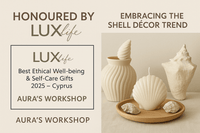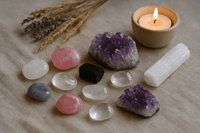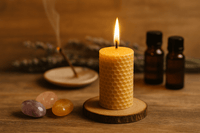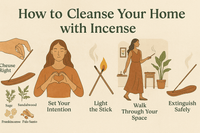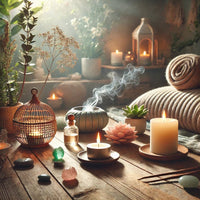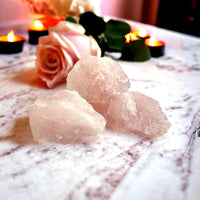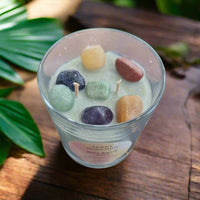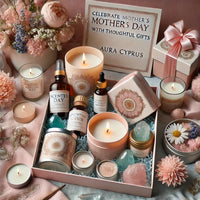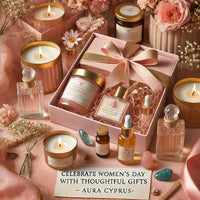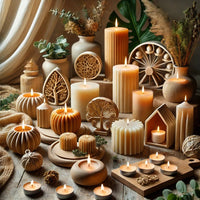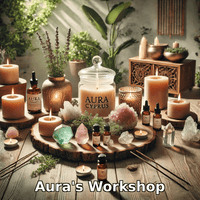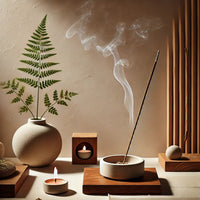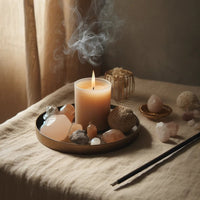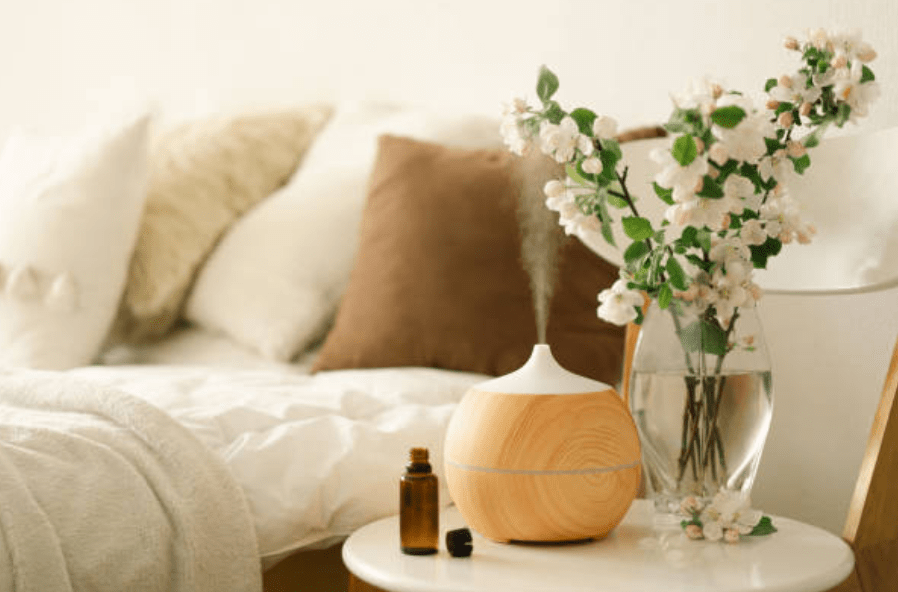
Oil Diffusers: Enhancing Your Environment with Aromatherapy
Discover the benefits, types, and uses of oil diffusers. Learn how to choose, use, and maintain an oil diffuser for aromatherapy, relaxation, and air purification.
Oil diffusers are a popular and effective way to enjoy the benefits of essential oils, creating a relaxing and aromatic environment in your home or office. Whether you're looking to enhance your well-being, purify the air, or simply enjoy pleasant scents, an oil diffuser can be a valuable addition to your space. In this guide, we'll explore what oil diffusers are, their types, benefits, and how to incorporate them into your life. For high-quality oil diffusers, visit Aura's Workshop in Cyprus.
What is an Oil Diffuser?
An oil diffuser is a device that disperses essential oils into the air, creating a fine mist that fills the room with fragrance. The primary purpose of an oil diffuser is to provide aromatherapy benefits, which can include relaxation, mood enhancement, and improved air quality.
Types of Oil Diffusers
There are several types of oil diffusers, each with unique features and benefits:
- Ultrasonic Diffusers: Use ultrasonic waves to create a fine mist of water and essential oils. These diffusers are quiet, efficient, and often double as humidifiers.
- Nebulizing Diffusers: Use pressurized air to create a mist of pure essential oil, without the need for water or heat. These are powerful and provide a strong aroma.
- Heat Diffusers: Use heat to evaporate essential oils, releasing their fragrance into the air. While they are simple to use, the heat can alter the therapeutic properties of the oils.
- Evaporative Diffusers: Use a fan to blow air through a pad or filter soaked with essential oil. These are effective for quick scent dispersion but may not provide long-lasting benefits.
Benefits of Using Oil Diffusers
Oil diffusers offer numerous benefits, including:
- Aromatherapy: The therapeutic properties of essential oils can help to relax the mind, reduce stress, and enhance mood.
- Air Purification: Some essential oils have antimicrobial properties that can help to purify the air and reduce harmful bacteria.
- Humidification: Ultrasonic diffusers add moisture to the air, which can be beneficial in dry environments.
- Allergy Relief: Certain essential oils can help to alleviate symptoms of allergies and respiratory issues.
How to Use an Oil Diffuser
Using an oil diffuser is straightforward, but it's important to follow the instructions specific to your device:
- Fill the Water Tank: Add water to the diffuser's tank up to the recommended level.
- Add Essential Oils: Add a few drops of your chosen essential oil to the water.
- Turn On the Diffuser: Turn on the device and select your desired settings (e.g., timer, mist intensity).
- Enjoy: Allow the diffuser to disperse the essential oils into the air, creating a pleasant and therapeutic environment.
Choosing the Right Oil Diffuser
Selecting the right oil diffuser depends on your personal preferences and intended use. Consider factors such as:
- Type: Choose between ultrasonic, nebulizing, heat, or evaporative diffusers based on your needs.
- Size: Ensure the diffuser is suitable for the size of the room where you plan to use it.
- Features: Look for additional features such as timers, LED lights, and adjustable mist settings.
- Design: Choose a design that complements your home decor.
For high-quality options, visit Aura's Workshop in Cyprus.
Oil Diffusers for Different Spaces
Oil diffusers can be used in various spaces to create a relaxing and pleasant atmosphere:
- Home: Use diffusers in living rooms, bedrooms, and bathrooms to enhance relaxation and well-being.
- Office: Place a diffuser on your desk to improve concentration and reduce stress.
- Car: Portable diffusers can be used in your car to enjoy aromatherapy on the go.
Popular Essential Oils for Diffusers
Essential oils offer a wide range of therapeutic benefits. Some popular choices include:
- Lavender: Known for its calming and relaxing properties.
- Eucalyptus: Helps to clear the airways and improve respiratory health.
- Peppermint: Provides a refreshing and invigorating scent, perfect for boosting energy.
- Lemon: Offers a clean and uplifting aroma, great for purifying the air.
Essential Oils vs. Fragrance Oils
While both essential oils and fragrance oils can be used in diffusers, there are key differences:
- Essential Oils: Extracted from plants, they offer therapeutic benefits and are used in aromatherapy.
- Fragrance Oils: Synthetic blends designed to mimic natural scents, primarily used for their pleasant aroma rather than therapeutic properties.
Maintenance and Cleaning Tips
Proper maintenance and cleaning are essential to keep your oil diffuser in good condition:
- Regular Cleaning: Clean the diffuser after every use to prevent buildup of essential oils.
- Deep Cleaning: Perform a deep clean once a week using water and white vinegar.
- Replace Parts: Replace any worn-out parts, such as pads or filters, as needed.
Health Considerations
While oil diffusers offer many benefits, it's important to use them mindfully:
- Ventilation: Ensure good airflow in the room to avoid overwhelming the senses.
- Quality Oils: Use high-quality, pure essential oils to avoid potential health risks.
- Allergies: Be mindful of any allergies or sensitivities to certain essential oils.
Customer Reviews and Testimonials
Reading customer reviews and testimonials can provide valuable insights into the quality and performance of an oil diffuser. At Aura's Workshop in Cyprus, our customers consistently praise our high-quality products and excellent customer service.
Oil Diffusers as Gifts
Oil diffusers make thoughtful and practical gifts for friends and family. Consider pairing a diffuser with a selection of essential oils to create a personalized gift set. Explore our gift options at Aura's Workshop in Cyprus.
Common Problems and Solutions
Troubleshooting common issues with oil diffusers can help maintain their performance:
- No Mist: Check if there is enough water in the tank and ensure the device is properly assembled.
- Weak Scent: Add more essential oil or try a different type of oil.
- Leaking: Ensure the diffuser is placed on a flat, stable surface and the water tank is not overfilled.
FAQs About Oil Diffusers
What is the best type of oil diffuser for aromatherapy? Ultrasonic and nebulizing diffusers are highly recommended for their ability to disperse essential oils effectively.
How often should I clean my oil diffuser? Clean your diffuser after every use and perform a deep clean once a week.
Can I use fragrance oils in my diffuser? Yes, but essential oils are preferred for their therapeutic benefits.
How long can I run my oil diffuser? Most diffusers have timers; you can run them for 1-8 hours, depending on the model.
Is it safe to leave an oil diffuser on overnight? It is generally safe, but use a diffuser with a timer to avoid continuous operation.
What are some popular essential oils for relaxation? Lavender, chamomile, and ylang-ylang are excellent choices for relaxation.
Conclusion
Oil diffusers offer a versatile and effective way to enjoy the benefits of aromatherapy, improve air quality, and create a relaxing atmosphere. Whether you use them in your home, office, or car, the right oil diffuser can enhance your well-being and environment. Explore our selection of high-quality oil diffusers at Aura's Workshop in Cyprus and find the perfect model for your needs.
Shop now and spread the love with our curated products for your home: https://auracyprus.com





























